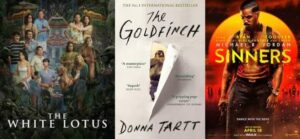Get yourself an Ivy League education about life.
When asked about his film education, famous Malayalam Director Dileesh Pothan, whose films are exemplars of character studies, sheepishly admitted he doesn’t watch too many films. However, he quickly added that he spends hours talking to people from all walks of life, asking them about their life stories. That’s his film education.
We, too, can do that. Choose to get an Ivy League education about life from the life stories of others. You don’t need brains or fat pockets to do that. All you need are sensitivity, an open mind, and the willingness to listen. TMI then becomes a valuable gift, not an annoyance. There are several reasons why other people’s stories are the best education. First, they help us realize that our experiences and emotions are universal. Billions before us have eaten, drank, cried, danced, laughed, made love, fallen to poverty and disease, flown into a rage, killed others and themselves, gone to jail. Innumerable people have broken hearts, been heartbroken, donated to charities, hoarded, pillaged, lied, cheated, stood up to injustice, got more than they deserve, got less than they deserve. Second: others’ stories substitute for our lack of life experience. Research suggests that vicarious experiences can help us build self-efficacy (the belief that we can successfully perform important tasks).
How lucky are we that an Ivy League education about life is also available online, thanks to YouTube? YouTube University offers a priceless collection of personal interviews and talks. Even better, there are no exams in these Ivy leagues; in fact, no one graduates alive (you want to be a lifelong learner, don’t you?). But the real test of whether you are getting your Ivy League education’s worth is how you discern the information and separate the grain from the chaff.
Occasionally give yourself a reality check of your own life by asking “how many of the stories you hear are about people who “lived” rather than just existed?


